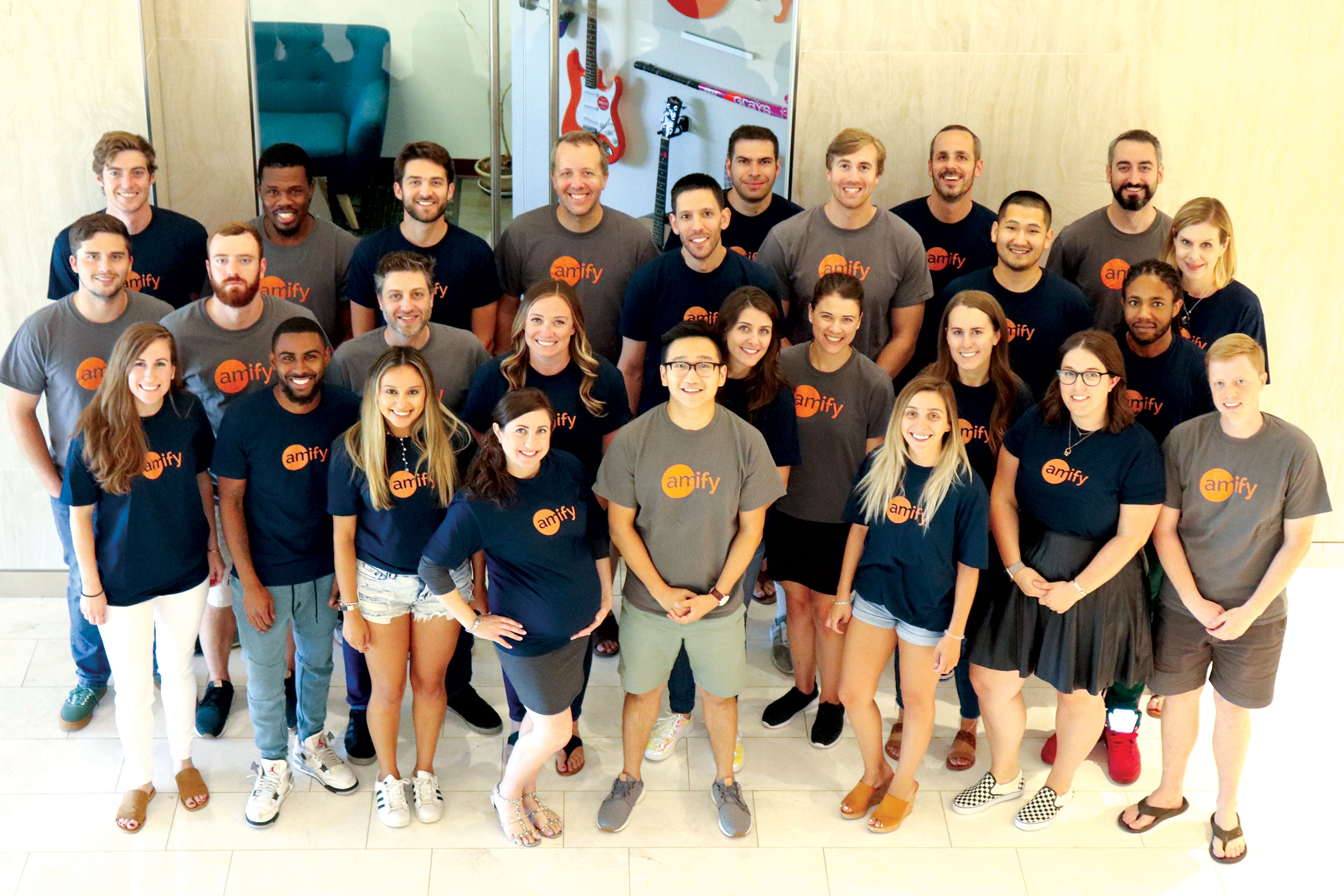PARLAYING PICKLEBALL
How a Pamplin alumnus planted the seeds of his $33 million company at Virginia Tech

Ethan McAffee at work.
For a young entrepreneur with business on his mind, Virginia Tech was a great place to be in the ’90s.
Coming out of high school in Virginia Beach, Ethan McAfee considered Virginia Tech to be ahead of the game in technology. The Blacksburg Electronic Village gave students a leg-up on the rapidly growing internet, and he saw the university’s SEED team—a student-run investment portfolio in the Pamplin College of Business—as a unique opportunity.
“Virginia Tech has always been a fast-mover on a lot of these new initiatives that 10 years later become a big deal,” said McAfee. “People who are going to school at Virginia Tech now are way ahead of the curve, versus others that aren’t as technology-friendly.”
McAfee ’98, a double-major in finance and accounting information systems, was head of SEED’s technology sector, meaning that he chose what stocks to invest in the rapidly growing tech sector of the mid-90s. That put him in perfect position entering the job market at the height of the internet boom.
With an eye for spotting developing trends, McAfee turned his SEED experience into a job at investment firm T. Rowe Price, then became an early portfolio manager at the hedge fund Ramsey Asset Management, a career that introduced him to entrepreneurs from hundreds of companies, including Mark Cuban, Meg Whitman, and Jeff Bezos.
After 11 years, McAfee decided to make a change.
“I had all this knowledge about technology and internet companies,” McAfee said. “I had always said that instead of investing in companies, it would be great to start my own.”
In 2010, McAfee looked at the changing retail landscape in America and realized the potential for selling through Amazon, which he calls “the mall of the internet.” Amazon’s fulfillment services meant that an entrepreneur could build a retail business while keeping overhead costs low.
“All of a sudden a person working out a townhouse could have a real e-commerce business and not have to worry about warehousing, about boxing products, about dealing with returns, about having to go to UPS everyday,” McAfee said. “You could start an e-commerce business out of your house. So I did.”
The next step was figuring out what to sell. Inspiration came from his parents, who lived in a Florida retirement community that McAfee describes as “basically the pickleball capital of the world.”
“Pickleball is this really fun game, like mini-tennis,” McAfee said. “You play it with what looks like a big pingpong paddle, with a whiffle-ball on a tennis court. You play doubles. Many people love it because it’s a lot of volleying and not much running. It’s a co-ed sport, and it becomes very social. You get to talking, make friends, all these good things.”
His parents complained, however, that they couldn’t find pickleball equipment at local stores, only online. McAfee recognized the opportunity.
“Here’s a rapidly growing niche product you can’t find at local stores,” McAfee said. And there weren’t that many products to sell, which allowed him to invest in a smaller inventory and still compete with bigger retailers.

Employees at Amify, which was founded by McAfee (back row, fourth from left) in 2010.
McAffee launched his company in 2010 and rapidly expanded to incorporate other products. Today, the company that started out as Pickleball Direct and became Amify in 2017 employs around 50, has sold more than $100 million of products through Amazon, and has made the Inc 500 list twice and the Inc 5,000 list four times. Amify is headquartered in Alexandria, Virginia, with a satellite office in Las Vegas. Pickleball accounts for only about 1 percent of its total revenue.
“Publicly, if you look on the Inc 5,000 list, our revenue last year was roughly $25 million,” McAfee said. “We’ll grow probably grow 35 percent this year to about $33 million in revenue. The market’s growing. It’s an exciting time.”
Amify uses technology to determine which products, among the millions available, to sell. Besides selling, the company offers consulting services to help retailers boost their presence on Amazon.
Alana Clark, a senior marketing major from Fairfax, interned at Amify, arriving in May 2018 to find an open office that offered opportunities for daily conversations with CEO McAfee.
“On my first day when I walked in, I made sure to introduce myself to Ethan,” Clark said. “Of course, Hokies can talk about Virginia Tech for hours. We had fun talking about even funny little things!”
At Virginia Tech, Clark participates in PRISM, a student-run advertising agency where she practiced developing and presenting social-media strategies for clients. At Amify, Clark put that experience into play.
“[Ethan McAfee] was impressed that Virginia Tech had taught me to work through such a huge portion of a business plan and lay it all out in a creative and graphically enticing way,” Clark remembered. “He said, ‘Virginia Tech is doing something right.’”
Clark implemented the plan, setting an ambitious goal for growth in social media. By the end of the summer, Amify had neared the target, falling just short of the goal, but growing exponentially.
“Ethan McAfee totally portrays the Hokie spirit,” Clarke said. “He’s kind, he cares, but he’s such a hard worker and knows he needs to get stuff done. He’s got a vision, but he doesn’t have tunnel vision to the point where he doesn’t care about his employees or family.”
McAfee’s advice for starting a business applies broadly: “Surround yourself with a whole bunch of other entrepreneurs who do [similar work]. You can find some amazing organizations that will help you do that. Here in Washington, D.C., I’ve found a huge nonprofit group of entrepreneur peers who share best practices and other advice. That’s been life-changing for me.”
